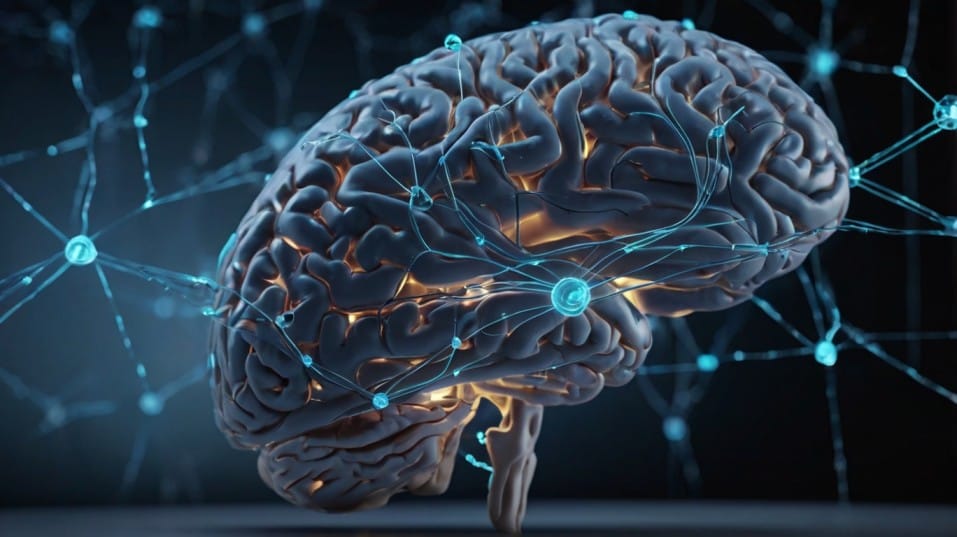How Mindfulness Enhances Brain Connectivity for Peak Performance
Discover how mindfulness enhances brain connectivity, optimizing focus, decision-making, and emotional intelligence for peak performance.

Is your brain operating at its best, or is stress silently eroding your focus and decision-making? Neuroscience shows that mindfulness can rewire your brain, enhancing clarity, adaptability, and emotional control.
By training your mind to stay present, you strengthen neural connections that boost cognitive performance—without adding extra tasks to your schedule.
Whether you’re aiming for sharper problem-solving, sustained attention, or better stress management, mindfulness offers a science-backed approach to unlocking your full potential.
How Mindfulness Strengthens Brain Connectivity
Your brain’s ability to function at peak levels depends on strong communication between key regions. Mindfulness enhances these connections, improving everything from focus to emotional regulation.
One of the most critical areas influenced by mindfulness is executive function—the set of cognitive skills that help you plan, focus, and make decisions under pressure.
Enhancing Executive Function
The prefrontal cortex (PFC) is responsible for complex thinking, problem-solving, and self-regulation. It’s what allows you to focus on high-priority tasks, plan strategically, and maintain composure under pressure.
Mindfulness increases PFC thickness, improving cognitive flexibility, working memory, and emotional intelligence. This translates to clearer decision-making, more effective problem-solving, and improved workplace interactions.

Studies using MRI scans have found that individuals who practice mindfulness consistently exhibit greater grey matter density in the PFC.
This structural enhancement enables professionals to sustain concentration for extended periods and manage stress-induced cognitive fatigue more effectively.
Regulating the Default Mode Network (DMN)
A hyperactive DMN can lead to constant mind-wandering, rumination, and overthinking—major roadblocks to productivity. Mindfulness dampens this overactivity, keeping you engaged in the present moment.
Research shows that meditation reduces DMN connectivity, allowing for better attentional control, enhanced task-switching abilities, and greater cognitive endurance.
By minimizing unnecessary mental chatter, you free up cognitive resources for high-value thinking and innovation.
Balancing Emotional Responses
The amygdala, the brain’s emotional processing center, plays a crucial role in stress responses. An overactive amygdala can lead to heightened anxiety, impulsive reactions, and difficulty managing workplace challenges.
Mindfulness weakens excessive amygdala activity, reducing emotional reactivity and fostering a more measured approach to decision-making.
The strengthened connection between the amygdala and PFC promotes rational, composed responses instead of knee-jerk reactions to stressors.
Studies indicate that long-term meditators have a smaller, less reactive amygdala, which correlates with reduced cortisol levels and an improved ability to handle high-pressure situations without emotional overwhelm.
Boosting Neuroplasticity
Neuroplasticity—the brain’s ability to form new neural pathways—is what allows professionals to continuously learn, adapt, and refine their skills.
Mindfulness accelerates neuroplasticity by increasing neural connections in key brain regions responsible for memory, focus, and creativity.
This heightened adaptability ensures that professionals can quickly adjust to changing circumstances, embrace innovation, and maintain peak cognitive performance despite workplace challenges.
Mindfulness Techniques That Rewire Your Brain
Understanding how mindfulness reshapes your brain is just the beginning. The next step is applying targeted techniques that actively strengthen neural pathways.
Different mindfulness practices train your brain in distinct ways, enhancing focus, emotional regulation, and cognitive flexibility.
Focused Attention Meditation
Training your mind to stay on a single focal point, such as your breath, strengthens attentional control, mental endurance, and cognitive clarity.
Neuroscientific studies show that this type of meditation increases grey matter density in areas linked to sustained attention, leading to better focus and sharper decision-making in high-stakes environments.
Practicing focused attention meditation for just 10 minutes a day can lead to noticeable improvements in concentration, memory, and information processing speed over time.
Body Scan Meditation
By tuning into bodily sensations, you refine brain-body communication. This technique enhances interoception—your awareness of internal signals—helping you detect stress early and regulate emotions effectively.
Body scan meditation has been shown to activate the parasympathetic nervous system, which counteracts the body’s stress response, lowers cortisol levels, and promotes deep relaxation.
This results in greater resilience and improved emotional regulation in high-pressure situations.
Open Monitoring Meditation
This practice sharpens cognitive flexibility by encouraging non-judgmental awareness of thoughts and emotions.
Instead of getting stuck in habitual thought patterns, you train your brain to observe without attachment, fostering adaptability and innovation.
Neuroscience reveals that open monitoring meditation strengthens connections within the executive control network, improving working memory, problem-solving skills, and perspective-taking—key attributes for leadership and collaboration.
Breathwork for Neural Balance
Controlled breathing techniques regulate neural activity, creating equilibrium between the brain’s logical and creative hemispheres.
Alternate nostril breathing enhances interhemispheric communication, promoting sharper analytical thinking while also supporting creative problem-solving.
Slow, deep breathing has been shown to reduce stress-induced overactivity in the amygdala, lower blood pressure, and enhance emotional stability, making it a powerful tool for professionals managing high-stakes responsibilities.
Visualization for Strengthening Neural Pathways
Guided imagery activates the same neural circuits involved in real-life experiences, reinforcing learning, confidence, and goal achievement.
Visualization techniques help professionals enhance performance, motivation, and resilience under pressure.
Athletes, public speakers, and executives use visualization to mentally rehearse success, strengthening neural pathways that support peak performance and stress management.
Long-Term Cognitive Benefits of Mindfulness
The advantages of mindfulness extend far beyond immediate stress relief. With consistent practice, it reshapes the brain in ways that enhance performance, resilience, and adaptability over time.
One of the most valuable long-term benefits is the ability to sustain mental energy without burnout.
Extended Mental Stamina
Practicing mindfulness consistently enhances cognitive endurance, enabling professionals to maintain concentration without experiencing burnout.
By reducing unnecessary mental clutter, mindfulness enhances processing speed and decision-making efficiency.
Enhanced Emotional Intelligence
Mindfulness fosters self-awareness, empathy, and effective communication, strengthening interpersonal relationships.
Research shows that mindful individuals are better equipped to navigate conflicts, lead with clarity, and build strong workplace connections.
Greater Adaptability and Creativity
By strengthening neuroplasticity, mindfulness enables professionals to acquire new skills faster, break habitual thinking patterns, and embrace innovation.
A more flexible mind translates to greater resilience in an ever-changing work environment.
Final Thoughts: Start Now, Train Your Brain
Mindfulness isn’t just about relaxation—it’s a performance upgrade.
By integrating focus training, breathwork, and visualization into your daily routine, you can rewire your brain for peak productivity, resilience, and adaptability. Start today—your future self will thank you.




